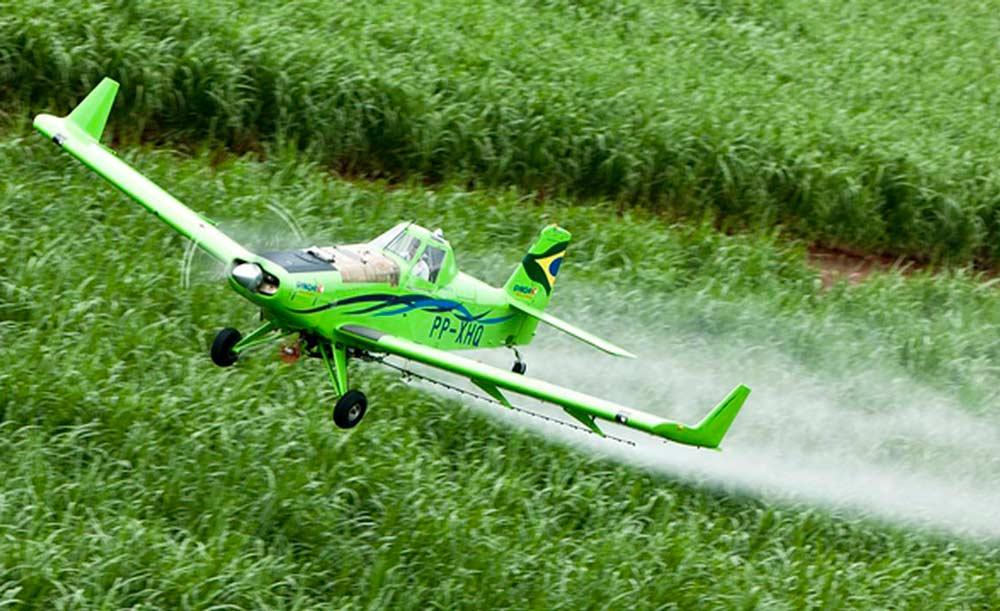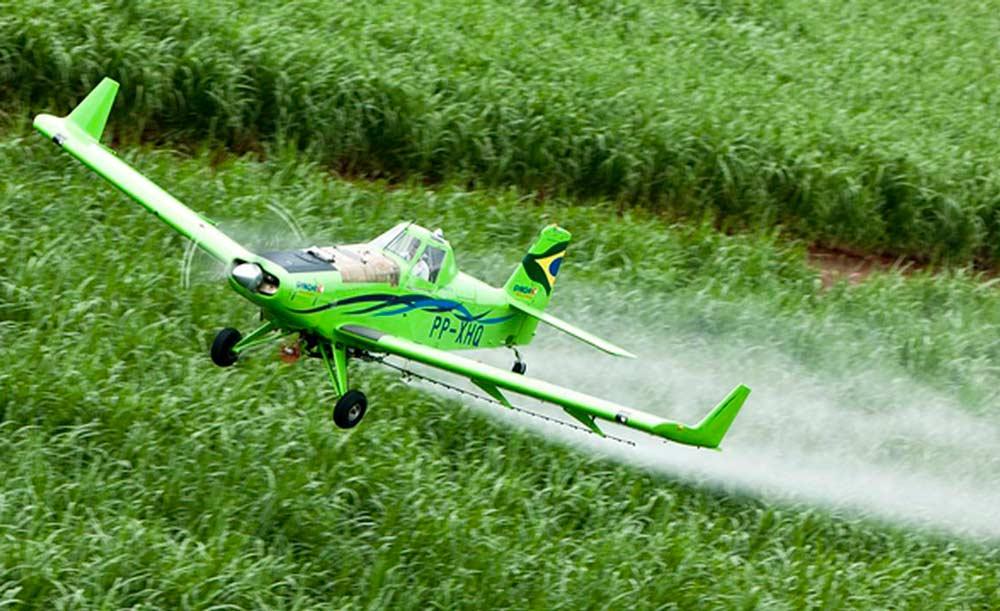
Study review confirms air pollution by glyphosate and other pesticides
The analysis was initially published in 2019 and has now been peer-reviewed by independent scientists and published in the renowned journalEnvironmental Sciences Europe. It was commissioned by Bündnis für eine enkeltaugliche Landwirtschaft and Umweltinstitut München and is the most comprehensive dataset on atmospheric pollution from pesticides in Germany. However, EU authorities responsible for the approval process for the use of glyphosate have so far excluded air transport.

Boris Frank, presidente da alliance for an agriculture suitable for grandchildren afirma que “the EU glyphosate approval process is based on false facts”. “our study, which has now been reviewed by an independent scientific panel., shows that the agricultural toxin binds to dust particles and is carried through the air for many kilometers into the interior of the country. Glyphosate ends up in protected natural areas, in organic fields and in the air we breathe. Glyphosate must not be reauthorized under any circumstances.”
In the peer-reviewed studyPesticides and pesticide-related products in ambient air in Germany, the agricultural toxin glyphosate was detected in each of the 69 measuring points distributed throughout Germany. Found far from potential source fields, even in national parks like the Bavarian Forest or the Harzer Brocken. Glyphosate is classified as “probably carcinogenic to humans” by the World Health Organization (WHO) and has a devastating effect on insects and their habitats..
Christine Vogt, an agricultural expert at the Umweltinstitut München states that it is now clearly proven that agricultural toxins spread much more than has been assumed by approval authorities so far.”. “We urge EU authorities to incorporate these scientifically confirmed findings into the re-evaluation of glyphosate. Anything else would be an act of gross negligence.”
currently, the public participation process for the reauthorization of glyphosate from 2022. O alliance for agriculture suitable for grandchildren e o Munich environmental institute apresentam, therefore, the study to the competent authorities.
In addition to glyphosate, dozens of other pesticides were registered in the ambient air, as the study shows. “we detected 109 different pesticides, including 28 which are not approved for use in Germany”, these Maren Kruse Place, lead author of the study and scientist at the TIEM Integrated Environmental Monitoring research office, who conducted the analysis. “At each sampling site, we have identified at least one pesticide. in most of them, there were several active substances and, in one place, there was even 36 different substances. We have a chemical cocktail in the air whose effects on humans and animals are completely unknown.”
O Alliance for agriculture suitable for grandchildren e o Munich Environment Institute apoiam a demanda da Iniciativa de Cidadania Europeia Save Bees and Farmers (save the bees and the farmers) to gradually ban all synthetic pesticides in the EU until 2035. Meanwhile, the european pesticide approval process must take the long-range transport of pesticides by air and the effect of combining different active substances into consideration.. The glyphosate authorization process after 2022 is a good place to start.
O texto foi originalmente publicado por Alliance for agriculture suitable for grandchildren, with translation and editing by Henrique Cortez for the EcoDebate.

Sorry, the comment form is closed at this time.